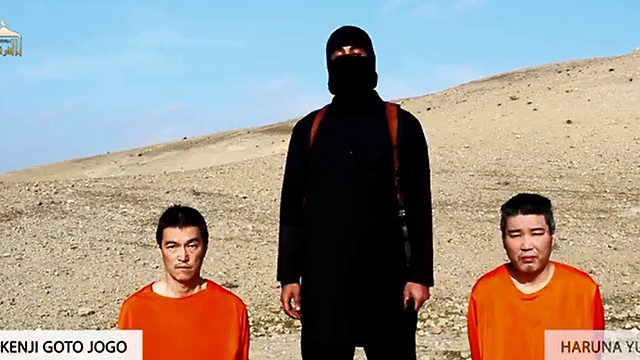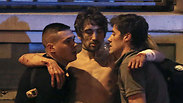
When ISIS strikes in the heart of Europe
Analysis: Among the Muslims in France who only want to live a quiet life, there are thousands of frustrated, poor, ignorant, unemployed and bored young people who envy the French people's high standard of living. The Internet exposes them to the Islamic State, which suggests that they fill the emptiness in their lives by joining an organization seeking to control the entire world.
The common denominator of the three targets of these attacks is that they are all involved in the war against ISIS - France and Russia in the air, and the Shi'ite Hezbollah organization on the ground alongside Syrian President Bashar Assad's regime.
ISIS recently threatened to carry out attacks on Russian soil as well. If the world powers fail to respond quickly and powerfully, the series of attacks will continue in other places around the world, and especially in the countries involved in the anti-ISIS coalition.
We must admit the painful truth: ISIS is an organization with active and inactive cells in three continents - in the Middle East, in Africa (Libya and Central Africa) and in Europe. ISIS operates international terror and there is not a single safe place on earth at the moment. Why did ISIS target France of all countries?
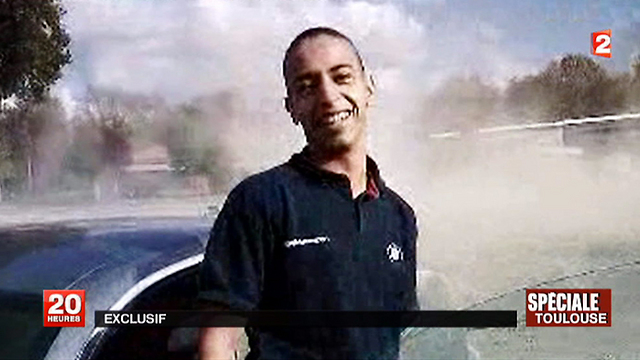
Infrastructure in Paris
A terror attack of such magnitude must have proper infrastructure, starting from homes for accommodation and food to secret armories. Every Frenchman knows where this infrastructure is located - in the Muslim quarters which the police are afraid to enter. The Saint-Denis quarter, home of the Stade de France national stadium, next to which one of the attacks was carried out, has a Muslim majority; anyone who visits it or other quarters in northern Paris feels as if they were visiting Beirut: Signs in Arabic, halal food, the majority of the population speaks Arabic and there are very few police officers (as opposed to the rest of Paris). One can definitely say that the writing was on the wall.
Among the Muslims in France who only want to live their life quietly and escape the poverty in their homelands, there are thousands of frustrated, poor, ignorant, unemployed and bored young people. They suffer from frustration and emptiness. They envy the high standard of living of the French, which they witness on a daily basis.
The Internet exposes them to the Islamic State, which suggests that they fill the emptiness with an immediate relief of their frustration: From inferiority to superiority, from total nothingness to joining an organization which seeks to control the entire world. The second group of potential volunteers can be found on university campuses, where the wild incitement against the "occupying" and "imperialist" West grows from day to day.
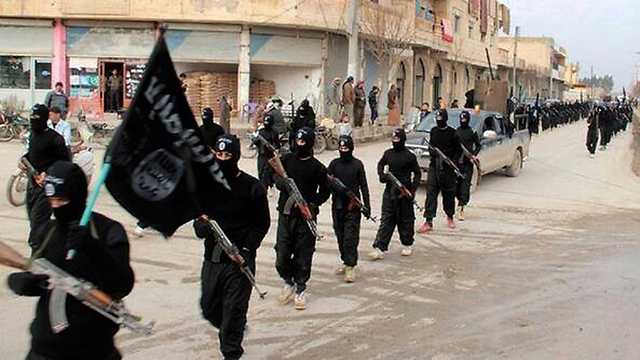
Many of the ISIS volunteers are the same students who celebrated the 9/11 attacks last decade or the ones who protested against the United States' war in Iraq. The anti-Western atmosphere (which is also anti-Israel) is backed by the socialist left and anarchist elements not only in French universities, but all over Europe and even in the US. The governments are turning a blind eye under the excuse of "freedom of expression." Many Israelis who arrive at foreign universities are shocked by it.
The third group of ISIS volunteers are young Muslims with a poor education, who are influenced by the sermons of radical preachers in mosques who have been allowed to preach freely for many years by Europe's governments. Neglect is a key word for understanding the current situation.
Neglecting Syria
The terror offensive in Paris is undoubtedly the result of neglecting Syria and Iraq for four years. ISIS is not trying to hide the horrors it is committing in the areas it controls and is distributing horrific videos of executions as the world remains silent. The huge power in the hands of the NATO and US armies is immensely higher than the abilities of the Islamic State, but it is not being used to destroy the monster created in Iraq and Syria once and for all.
The unbearable lightness in which Jihadi John was killed by an RPV in the main square of the city of al-Raqqah raises many questions, including: Why did they wait an entire year to do that? Why aren't the two capitals of ISIS, Mosul in Iraq and al-Raqqah in Syria, occupied first?
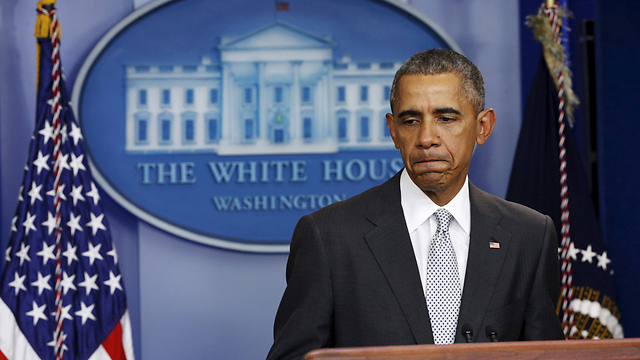
The result of the absence of a quick solution for the ISIS problem is the creation of an illusion among jihad supporters worldwide that this time, unlike Osama bin Laden and global jihad organizations which have failed in the past, the Islamic State is a success story and is about to renew the huge Islamic caliphate of the Middle Ages.
A score to settle with France
About 1,300 years ago, French knights were the ones who curbed the Muslim invasion of Europe. At the time, the Muslim empire extended from Spain to India. About 400 years later, the Christian crusaders, most of whom were French speakers, conquered Jerusalem and ruled it for nearly 100 years.
While the "crusaders' kingdom" was destroyed long ago, the official ISIS website boasts "an attack on the French crusaders on the 2nd of the month of Safar, 1437 (the date of the attack according to Muslim counting)." According to the statement in which the organization claimed responsibility, "The operation brought fear to the crusaders' doorstep."
As far as they are concerned, France, the country of freedom and permissiveness, symbolizes the highest form of heresy, and the Islamic State leaders therefore take pride in claiming responsibility for the attack which occurred in the capital of "prostitution and vice."
According to ISIS, France "will continue to be at the top of the Islamic State's target list as long as they dare to curse our prophet (referring to satirical newspaper Charlie Hebdo) and strike the Caliphate (the organization's territory in Syria)."
Training in Syria, murdering in Paris
The killers in Paris demonstrated skills and murderous motivation acquired in ISIS areas in Syria and Iraq. The Islamic State is not an innovation of the Muslim caliphate, but an enormous base of international terror, a sort of huge training camp for suicide bombers and terror attack organizers, and the headquarters for unlimited acts of cruelty.
It was clear that if the West would not come to Syria, Syria would come to the West. It was Egyptian President Abdel Fattah al-Sisi who warned European leaders many times in the past two years that the lack of a military intervention in Libya and Syria would eventually affect the European countries' security and that the terror would come from the Middle East. But his comments were not taken seriously by the leaders of Europe.
Terror accomplices
Unlike Egypt, many countries which rushed to condemn the attacks in Paris and which claim to be fighting terror, are directly or indirectly linked to it: Qatar, which funds the Sunni terror organizations; Turkey, which allowed thousands of volunteers from around the world to join ISIS through by crossing its border with Syria; and Iran, which is behind the Shi'ite terror and seeks to gain control of the lands which will be lost by ISIS.
In other words, some of the partners of the US and Russia in the "war on terror" are themselves countries with a jihadist ideology.
Similarly, some of the countries which condemned the attack in Beirut were involved with it, particularly the Gulf states. Although Hamas condemned the Dahiya attack, the incident exposed the deep Palestinian involvement in ISIS. Two of the three suicide bombers in Beirut were Palestinian.
The source of the fanatic religious ideology, which is the exact opposite of the French principles of freedom, equality and fraternity, can easily be found in Saudi Arabia and Iran. In these two countries, human rights are violated on a daily basis; every year dozens of people are executed by hanging in the squares and women are stoned to death.
The Saudis, however, as opposed to the Iranians, have been trying in the past few years to fight the terror they supported for many decades out of an understanding that it poses a threat to the kingdom's welfare and to its allies, Egypt and Jordan.
The November 13, 2015 attacks will be remembered as the "9/11 of France" in particular and of Europe in general. From now on, the European Union's approach towards the threat of Islamic terror organizations will change.
As long as ISIS was busy murdering Muslim Arabs, the West remained indifferent. Let's hope that the Paris attacks will motivate anyone interested in destroying the ISIS octopus which is threatening peace in the entire world.
Dr. Yaron Friedman, Ynet's commentator on the Arab world, is a graduate of the Sorbonne. He teaches Arabic and lectures about Islam at the Technion, at Beit Hagefen and at the Galilee Academic College. His book, "The Nusayri Alawis: An Introduction to the Religion, History and Identity of the Leading Minority in Syria," was published in 2010 by Brill-Leiden.











